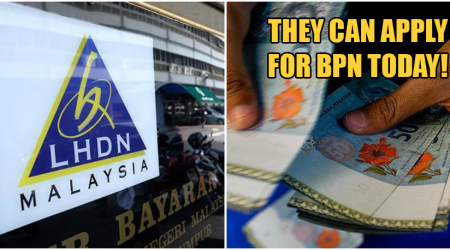Singapore REIT investment ideas: Get more money from these 3 REITs!

Real estate investment trusts (REITs) are well-known for their income-producing ability. If a REIT can increase its distribution per unit (DPU) year-on-year, dividend investors usually take bigger notice, as that could mean that the REIT has a strong business. DPU is the money that investors receive from investing in REITs.
Here, let’s check out three Singapore-listed REITs that upped their DPU for the latest quarter.
REIT #1: CAPITALAND MALL TRUST
CapitaLand Mall Trust (SGX: C38U) is a shopping mall REIT that owns a total of 15 malls all over Singapore, including IMM Building, JCube, and Plaza Singapura. As of end-2018, CapitaLand Mall Trust was the largest shopping mall owner in Singapore, owning around 15 per cent of malls greater than 100,000 square foot of net lettable area.
The next biggest player, NTUC, only had 6 per cent of the market share. Other listed Singapore REITs, such as Frasers Centrepoint Trust (SGX: J69U) and Mapletree Commercial Trust (SGX: N2IU), had a market share of 4.3 per cent and 3.8 per cent, respectively.
For CapitaLand Mall Trust’s third quarter ended 30 September 2019, gross revenue increased by 17.9 per cent to $201.1 million. The REIT said that the higher gross revenue was thanks to the acquisition of the remaining 70 per cent interest in Westgate (on 1 November 2018), and the opening of Funan (on 28 June 2019) after a three-year redevelopment.
After deducting property expenses, net property income improved by 17.6 per cent to $144.2 million. Consequently, DPU for the 2019 third-quarter climbed to 3.06 cents, up 4.8 per cent from 2.92 cents last year.
Over the longer run, from 2014 to 2018, CapitaLand Mall Trust’s DPU grew around 6 per cent in all.
| Year | DPU (cents) |
|---|---|
| 2014 | 10.84 |
| 2015 | 11.25 |
| 2016 | 11.13 |
| 2017 | 11.16 |
| 2018 | 11.50 |
The fall in DPU in 2016 was mainly due to the closure of Funan DigitaLife Mall on 1 July 2016 and divestment of Rivervale Mall on 15 December 2015. DPU has since recovered.
In 2019, I would expect DPU to be higher than that in 2018 due to contributions from Funan and Westgate that were not available in the previous year.
REIT #2: MAPLETREE COMMERCIAL TRUST
Mapletree Commercial Trust owns office and retail assets in Singapore such as VivoCity, Mapletree Business City I (MBC I), and PSA Building.
Mapletree Commercial Trust’s DPU for the latest quarter grew 2.2 per cent year-on-year to 2.32 cents. The growth came on the back of gross revenue and net property income climbing 1.9 per cent and 1.7 per cent, respectively.
Higher contributions from VivoCity, MBC I, PSA Building, and Bank of America Merrill Lynch HarbourFront led to the better showing.
From FY14/15 to FY18/19 (the REIT has a 31 March year-end), Mapletree Commercial Trust’s DPU climbed 14 per cent in all.
| Year | DPU (cents) |
|---|---|
| FY14/15 | 8.00 |
| FY15/16 | 8.13 |
| FY16/17 | 8.62 |
| FY17/18 | 9.04 |
| FY18/19 | 9.14 |
The REIT has consistently increased its DPU over the years, and that’s a nice trend to see. On 15 October 2019, it also received unitholder approval to acquire Mapletree Business City (Phase 2).
Mapletree Commercial Trust said that the acquisition is expected to increase its net property income, DPU and net asset value per unit.
REIT #3: PARKWAY LIFE REIT
Parkway Life REIT (SGX: C2PU) is one of Asia’s largest listed healthcare REITs. It has 50 properties in total in Singapore, Japan, and Malaysia. In Singapore, Parkway Life REIT owns Mount Elizabeth Hospital, Gleneagles Hospital, and Parkway East Hospital.
On Thursday morning, the REIT announced its financial results for the third quarter ended 30 September 2019. Gross revenue improved 5.4 per cent year-on-year to $29.9 million.
The increase was thanks to higher rent from the Singapore assets, appreciation of the Japanese Yen, and a one-off receipt of insurance proceeds. With an increase in property expenses, net property income went up by a smaller percentage of 3.9 per cent to $27.6 million.
DPU for the latest quarter improved by 1.9 per cent to 3.30 cents, up from 3.23 cents one year ago.
Over a longer period, Parkway Life REIT’s DPU (excluding one-off divestment gains) has climbed some 12 per cent in all from 2014 to 2018.
| Year | DPU (cents) |
|---|---|
| 2014 | 11.52 |
| 2015 | 11.79 |
| 2016 | 12.12 |
| 2017 | 12.46 |
| 2018 | 12.87 |
Properties from Singapore contribute to most of the REIT’s gross revenue. Their rentals include a built-in rental escalation, based on the consumer price index (CPI), a measure of inflation. This feature guarantees a 1 per cent growth in minimum rental yearly.
As for the Japan properties, most of the properties have an “up only” rental structure, meaning that the rentals can only go up. The Malaysia portfolio contributes to a negligible amount of gross revenue.
The resilient rental structure makes Parkway Life REIT an attractive REIT for investors.












Leave a Reply